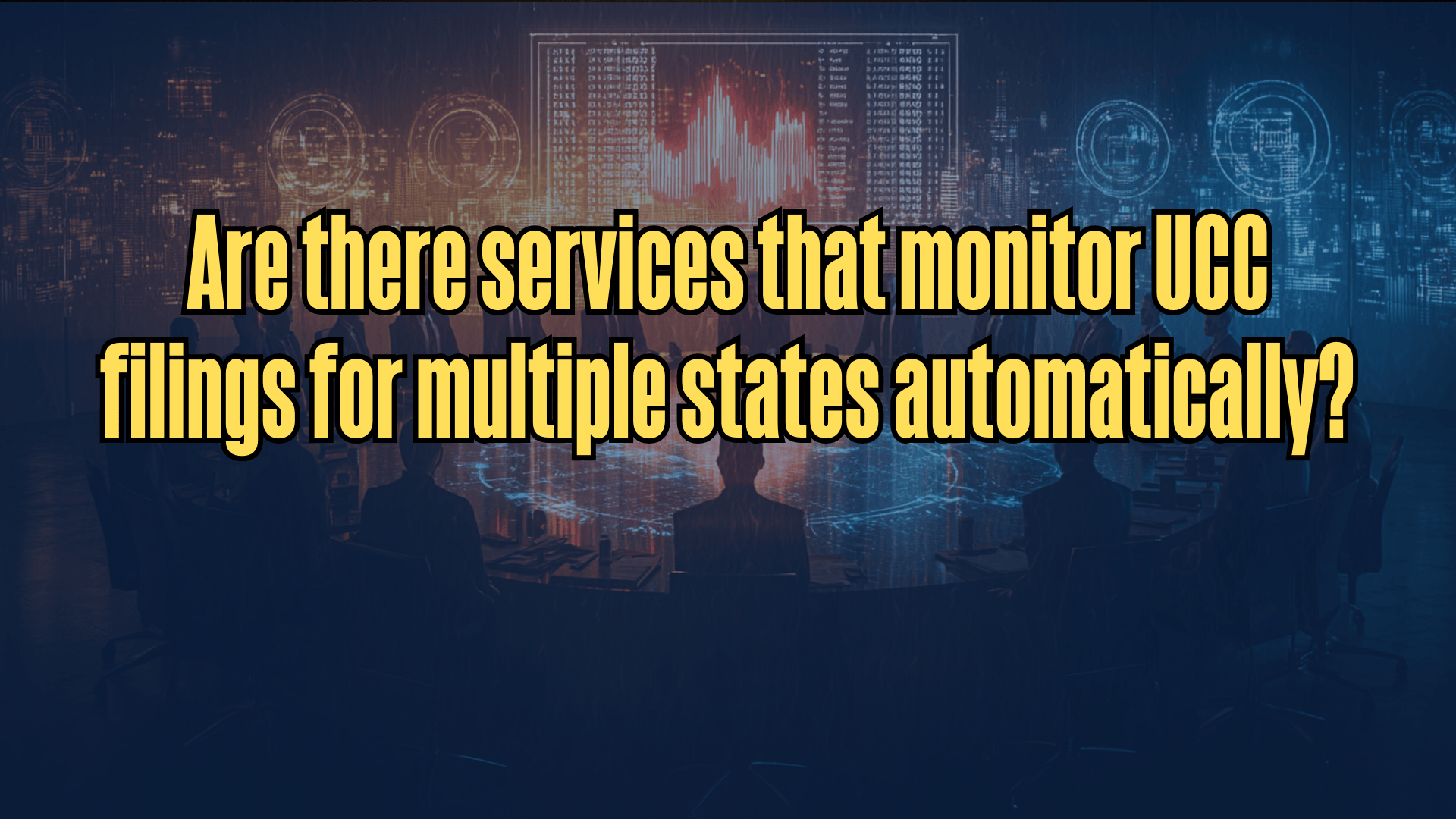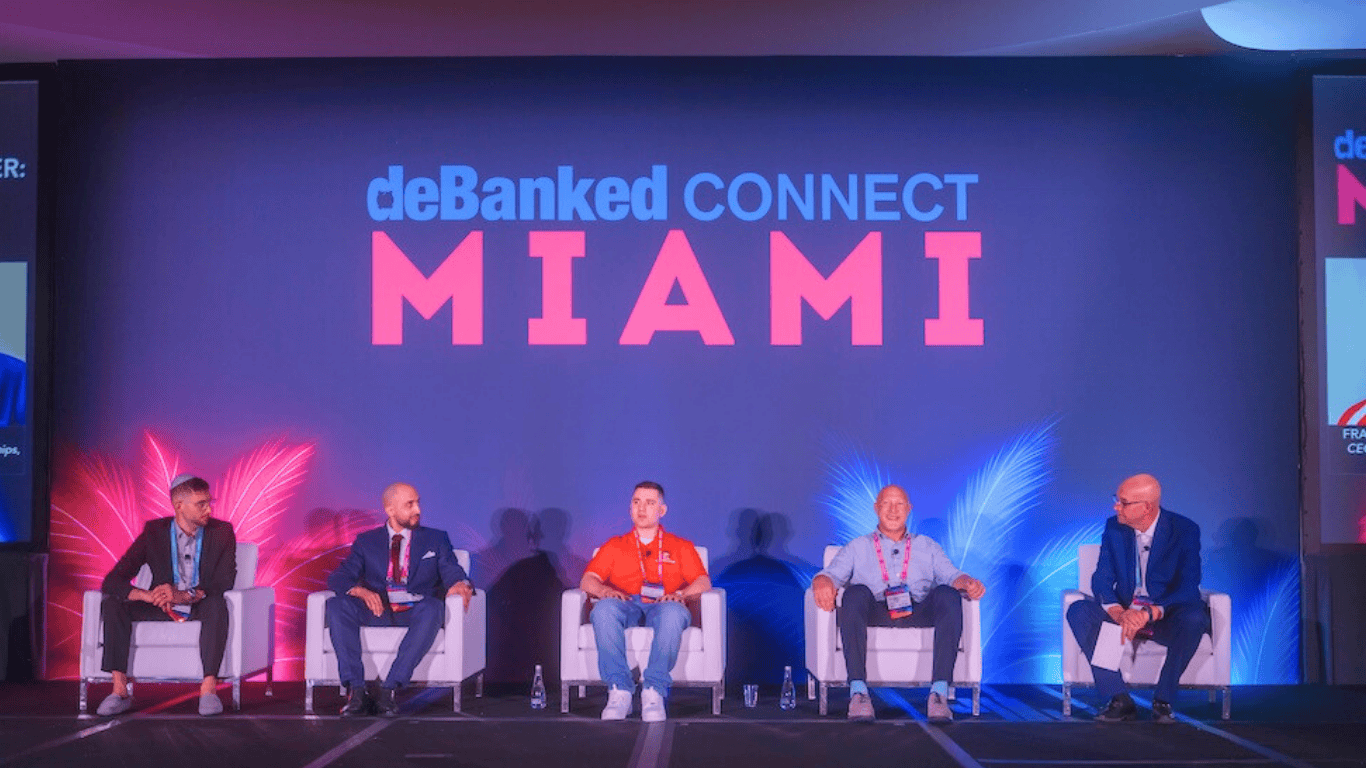When we talk about "monitoring," it's crucial to distinguish between real-time data retrieval for a specific transaction and continuous, proactive alerts for changes. Current services primarily excel at the former, with multi-state coverage for continuous monitoring presenting more complex challenges.
Cobalt Intelligence, for instance, offers a UCC Filing Data API that allows for real-time access to UCC filings. This API is designed to instantly uncover existing liens, identify secured parties, and understand the collateral involved. This capability is instrumental for:
- Immediate Risk Insight: Lenders gain instantaneous insight into a business's secured obligations, enabling them to make credit decisions with up-to-the-minute information. This directly impacts risk assessment, helping alternative lenders to accurately price risk and structure loan terms.
- Direct from Source Accuracy: Cobalt Intelligence prides itself on directly accessing state sites and leveraging existing agreements to obtain UCC data. This direct-to-source approach significantly enhances reliability, as every UCC search through their API is typically a live search. This commitment to live data ensures the information is as current and accurate as possible, preventing decisions based on outdated records.
- Cost-Effective Integration for Covered States: For the states where UCC data is available, Cobalt Intelligence often provides this access without an additional cost when requested via a specific parameter in the API call. This makes it a highly efficient and economical addition to existing business verification workflows.
Current Multi-State Coverage for UCC Filings
While the concept of comprehensive, automated multi-state monitoring is highly desired, current offerings like Cobalt Intelligence have a more targeted scope for UCC data compared to other services.
- Targeted State Availability: Cobalt Intelligence's UCC Filing Data API currently provides coverage for 11 specific U.S. states. This is a key point of differentiation from their Secretary of State (SOS) API, which boasts comprehensive coverage across all 50 U.S. states and D.C.
- Beyond Primary Registration Data: It's important to note that UCC filings are distinct from primary business registration data (SOS data). While a solution like Cobalt's SOS API offers a "Full Verification API" to search all 50 states at once for business legitimacy, the UCC data is a separate, specialized offering with more limited multi-state coverage at present.
The Nuance of "Automatic Monitoring"
The term "automatic monitoring" typically implies continuous, push-notification-based updates when changes occur. While Cobalt Intelligence's API provides real-time retrieval, it is primarily designed for transactional lookups rather than continuous, passive monitoring.
- Transactional Retrieval vs. Continuous Alerts: The current UCC API is built for instantly pulling current lien information at the point of an application or a specific due diligence check. It provides a snapshot of the most up-to-date data available at the moment of the request.
- Active "Pulls" for Updates: For ongoing monitoring, clients would need to implement their own logic to periodically query the API (i.e., perform active "pulls") to check for changes in UCC filings within the supported states. This contrasts with a system that automatically "pushes" notifications when a change is detected without an explicit request.
Strategic Implications for Lenders
Despite the current distinction between real-time retrieval and continuous, all-state monitoring for UCC, leveraging existing solutions offers significant strategic advantages for alternative lenders and institutional executives within the supported states:
- Fortified Fraud Prevention: Access to accurate, real-time UCC data is a powerful tool for fraud prevention. It helps to uncover hidden liabilities and prevent lending to businesses with undisclosed or newly filed liens that could impact repayment priority. This reduces financial exposure and safeguards portfolios.
- Streamlined Due Diligence: Integrating UCC data into an automated workflow, alongside other verification services like SOS data and TIN verification, significantly streamlines due diligence processes. This automation drastically reduces manual effort and accelerates the underwriting process, leading to faster capital deployment and improved customer experience.
- Holistic Risk Assessment: When combined with comprehensive SOS data (available for all 50 states + D.C.), TIN verification, and court records (for New York State and Miami-Dade County), UCC data contributes to a more holistic and robust risk assessment framework. This multi-layered approach helps lenders build a complete profile of a business's legitimacy and financial health.
In conclusion, while services like Cobalt Intelligence offer robust, real-time UCC data retrieval for a targeted set of states, achieving fully automatic, continuous multi-state monitoring across all 50 U.S. jurisdictions is a more nuanced challenge influenced by data accessibility and cost, thus not currently available.












.png)